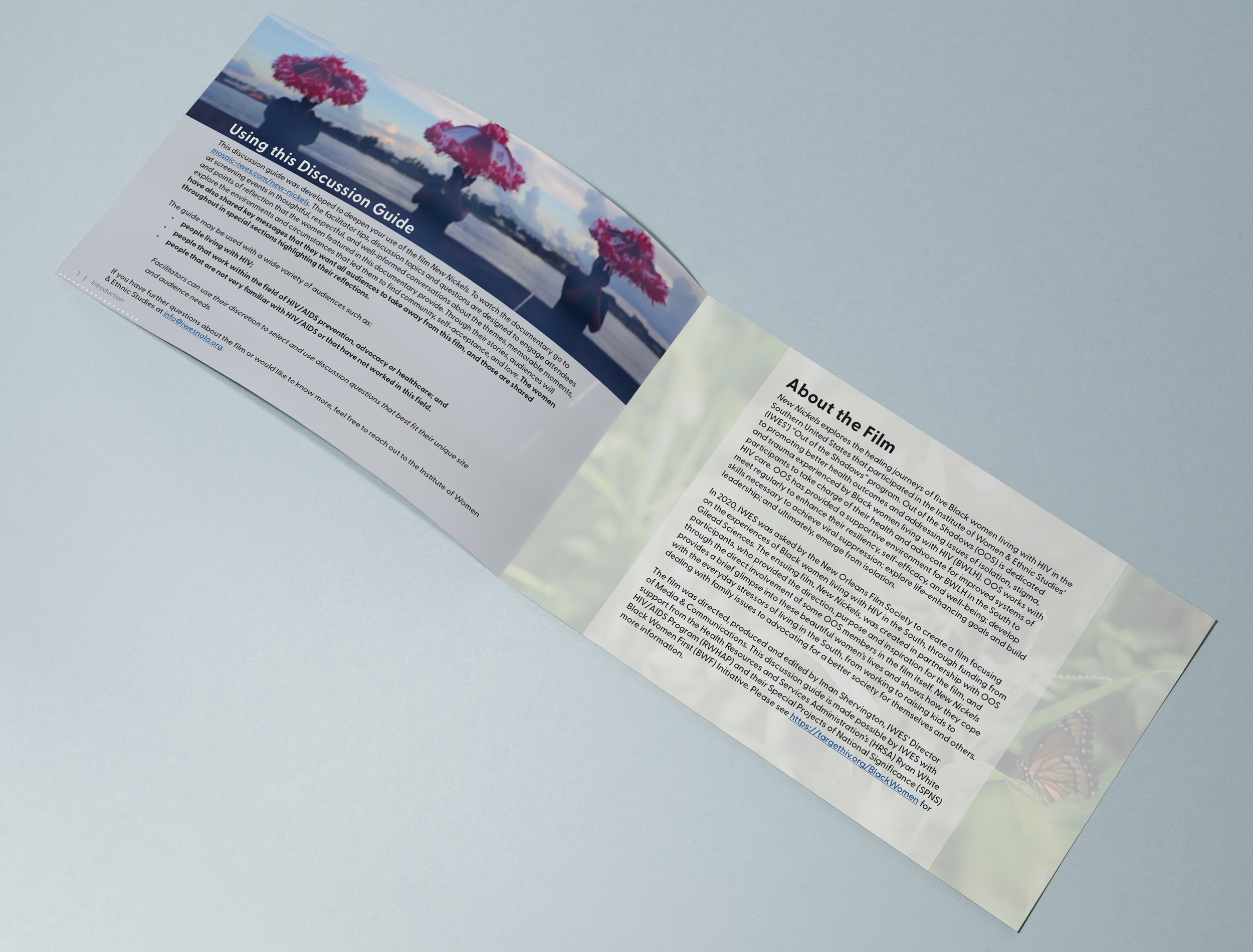Learning From our HIV Stigma Reduction Campaign
“telling the story, de-stigmatizing the discussion, normalizing the talking about HIV in our community,” led to strong shifts in knowledge, attitudes, emotions and opinions among peer groups
In 2021 we told you all about participant recruitment and the program launch for our work that is supported by the Health Resources & Services Administration (HRSA), the Black Women First initiative’s Care and Treatment Services (CATS) NOLA, and then again in 2022 we wrote about how we were celebrating participant graduations. Now we’re back to share some incredible news regarding our community-level intervention, that we’ve piloted an HIV stigma reduction campaign! The campaign includes a training resource for clinics, information to raise community awareness about HIV, and healing resources for people living with HIV.
The Campaign
Stigma, in the context of HIV, is defined as negative attitudes and beliefs about people living with HIV. It is the prejudice that comes with labeling an individual as part of a group that is believed to be socially unacceptable. Building on Years 1 and 2 of CATS NOLA learnings, last year our staff interviewed Black Women living with HIV (BWLWH) and the providers that serve them to better understand how stigma intersects with service provision and what is needed to better support BWLWH to access and stay in optimal care. The findings from that research were packaged together in a comprehensive discussion guide based around one of our newest films, New Nickels, which is a stigma reduction film featuring Black women living with HIV in the South. The lessons from the formative research were able to combine seamlessly with the major takeaways and themes from the film, and the discussion guide provides opportunities for learning and reflection for all audiences. The HRSA team also worked closely with our Media & Communications team to create an array of print materials that could be disseminated at clinics and other sites that serve people living with HIV.
Campaign materials include:
a 24-min documentary film, New Nickels, that explores the healing journeys of five Black women from New Orleans who are living with HIV,
a corresponding Discussion Guide with content designed specifically for staff, clients, and the community at large to start and sustain conversations about reducing stigma for people–especially Black women–living with HIV,
and a selection of HIV stigma reduction print materials, including posters, table tents, affirmation cards, and affirmation stickers to feature in waiting rooms and other public areas.
The team then recruited clinics, care settings, and community forums across the country to pilot the campaign through a “choose your own adventure” approach. Of over 20 entities recruited, five of the 12 peer AIDS Service Centers, federally qualified health centers, and coalitions in southeast Louisiana, as well as five of 11 national BWF initiative co-grantees, chose to implement within the pilot window, for a total of 10 implementations.
Pilot sites were able to select which materials to try out and how to use them based on what was most manageable and meaningful for their staff, clients, and communities. We provided recommendations for how to use the campaign materials but left the ultimate decision up to piloting sites and facilitators.
For example, we recommended that sites:
Host an event for their staff or clients and community members in March or April 2023 to commemorate Women’s History Month or STI Awareness Week (April 9th -15th) with a film screening and open discussion about ending HIV stigma, and/or
Facilitate conversation and training around cultural humility and implicit bias, using the guide to put stigma reduction work into action for providers, clinic staff, and/or leadership teams, and/or
Beautify meeting spaces, waiting areas, and exam rooms by displaying posters and table tents featuring Black women with HIV so that clients feel more welcome and seen.
Beginning in March , we conducted post-pilot interviews with pilot site ‘champions’—clinical directors, providers, program managers, health navigators, and community engagement specialists—to gather feedback on how campaign materials were used, how easy or difficult they were to use and why, and where there is room for growth.
Key findings from pilot interviews include:
Reach
Across all sites, champions estimate 120 attended a film screening and discussion and 550 people engaged with print materials.
Accessibility
Participants found the subject matter critical—especially addressing HIV stigma in Southeast Louisiana. Champions agreed it was easy to understand the campaign ask, appreciated having ready-made content to implement, and said the ‘edu-tainment’ style content encouraged group engagement. The most common criticism we found is that one hour is far too short for these deep discussions!
Acceptability
Groups reacted positively, especially reflecting on the stories depicted in the film as well as personal experiences moving through stigma and comfort with advocacy. One interesting discussion topic was the exploration of how feelings of isolation and loneliness impact self-esteem and in turn, someone’s ability to get proper health care. Groups also loved the print materials, especially “seeing individuals that are reflective of our communities in which we serve,” combined with “ powerful statements that go perfectly with what we believe in, and how we want to empower women.”
Short-term Outcomes
Champions were also asked what, if anything, happened as a result of using the pilot materials. All champions underscored that they allowed Black women living with HIV to take center stage, and that the film “gave an inside look into not just the lives of Black women, but also what it looks like to support Black women.” Pilot sites appreciated that the campaign allowed them to “tell the story, de-stigmatize the discussion, and normalize the talking about HIV in our community.” This has led to strong shifts in knowledge, attitudes, emotions, and opinions among peer groups. It has also offered an opportunity for leadership among HIV+ peer staff, clinical staff, and providers, and for deeper understanding of the impacts of stigma on their patients accessing and sustaining medical care.
All our findings will be applied as edits to the final discussion guide and print materials package, as well as towards promoting New Nickels, curating support spaces for Black Women living with HIV, and conducting HIV stigma reduction in the future.
To learn more about this HIV Stigma Reduction Campaign, please contact IWES Director of Programs, Jakevia Wheeler, MPH.




